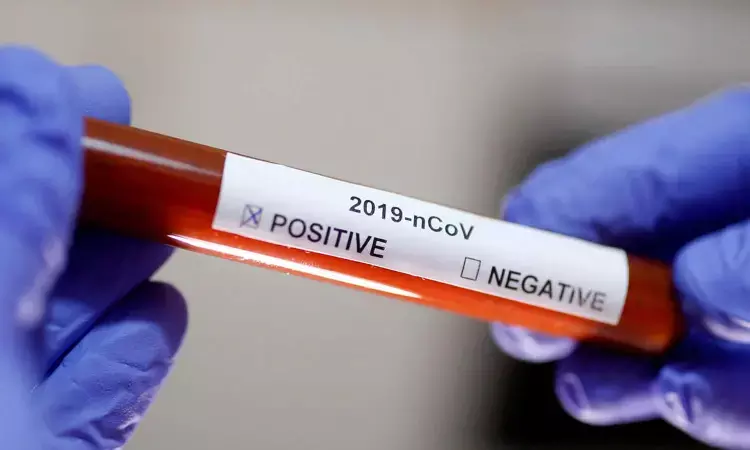- Home
- Medical news & Guidelines
- Anesthesiology
- Cardiology and CTVS
- Critical Care
- Dentistry
- Dermatology
- Diabetes and Endocrinology
- ENT
- Gastroenterology
- Medicine
- Nephrology
- Neurology
- Obstretics-Gynaecology
- Oncology
- Ophthalmology
- Orthopaedics
- Pediatrics-Neonatology
- Psychiatry
- Pulmonology
- Radiology
- Surgery
- Urology
- Laboratory Medicine
- Diet
- Nursing
- Paramedical
- Physiotherapy
- Health news
- Fact Check
- Bone Health Fact Check
- Brain Health Fact Check
- Cancer Related Fact Check
- Child Care Fact Check
- Dental and oral health fact check
- Diabetes and metabolic health fact check
- Diet and Nutrition Fact Check
- Eye and ENT Care Fact Check
- Fitness fact check
- Gut health fact check
- Heart health fact check
- Kidney health fact check
- Medical education fact check
- Men's health fact check
- Respiratory fact check
- Skin and hair care fact check
- Vaccine and Immunization fact check
- Women's health fact check
- AYUSH
- State News
- Andaman and Nicobar Islands
- Andhra Pradesh
- Arunachal Pradesh
- Assam
- Bihar
- Chandigarh
- Chattisgarh
- Dadra and Nagar Haveli
- Daman and Diu
- Delhi
- Goa
- Gujarat
- Haryana
- Himachal Pradesh
- Jammu & Kashmir
- Jharkhand
- Karnataka
- Kerala
- Ladakh
- Lakshadweep
- Madhya Pradesh
- Maharashtra
- Manipur
- Meghalaya
- Mizoram
- Nagaland
- Odisha
- Puducherry
- Punjab
- Rajasthan
- Sikkim
- Tamil Nadu
- Telangana
- Tripura
- Uttar Pradesh
- Uttrakhand
- West Bengal
- Medical Education
- Industry
New AI based Covid 19 test that locates asymptomatic carriers eight times faster

BEER-SHEVA, Israel -The spread of Covid 19 can be halted by social distancing measures and increased testing.The methodology available as of now for testing includes RT PCR and antibody testing which takes few hours to give results.
Israeli researchers have developed a new algorithm-based test using artificial intelligence.The method can speed COVID-19 testing eightfold and help locate asymptomatic carriers.
The research team, which is using a laboratory robot to conduct the tests includes Prof. Angel Porgador and Dr. Tomer Hertz from Ben-Gurion University of the Negev's (BGU) Shraga Segal Department of Microbiology, Immunology and Genetics and the National Institute of Biotechnology; Prof. Yonat Shemer-Avni, head of Soroka University Medical Center's Virology Lab, and Dr. Noam Shental from the Open University's Department of Computer Science.
Prof. Porgador, who is also the BGU deputy vice president of R&D for BGU says, "The initial results are very promising, and we are validating the method. Experience shows us that the way to slow down the spread of the pandemic is to increase the number of tests and break the chain of infection. Our method should enable a widespread operation in the near future to detect the virus in the general population, which is not quarantined, but which could threaten the public more than the patients currently under observation."
According to Dr. Hertz, "In light of the mounting evidence of the importance of asymptomatic carriers in spreading COVID-19, it is critical to locate these carriers as quickly as possible, to isolate them and thus slow the infection rate in high-risk groups. We believe that our method will help do so by dramatically speeding up testing."
They determined that the key is to divide the samples into different pools. "The planning and constructing of the pools and the way we mix the individual samples enables us to identify and follow up with those found positive for COVID-19 after far fewer tests than the norm," explains Dr. Shental.
"The next stage of the experiment is to test the medical services personnel at Soroka hospital in conjunction with the Infectious Disease Unit headed by Dr. Lior Nesher."
"The sooner we can located asymptomatic carriers, the sooner we can return to a more normal life, so this innovation holds promising potential," says Doug Seserman, chief executive officer of the New York City-based American Associates, Ben-Gurion University of the Negev. "We have a number of tests in development as a result of the fast mobilization of our researchers to address the pandemic."
The new test is just one of more than 50 initiatives underway as part of the BGU COVID-19 Response Effort. These each require financial support, and AABGU has announced its commitment to raise emergency funds, enabling BGU to participate fully in the world's efforts at mitigation and containment. Contributions can be made online at http://www.aabgu.org/donate-covid-19
Hina Zahid Joined Medical Dialogue in 2017 with a passion to work as a Reporter. She coordinates with various national and international journals and association and covers all the stories related to Medical guidelines, Medical Journals, rare medical surgeries as well as all the updates in the medical field. Email: editorial@medicaldialogues.in. Contact no. 011-43720751
Dr Kamal Kant Kohli-MBBS, DTCD- a chest specialist with more than 30 years of practice and a flair for writing clinical articles, Dr Kamal Kant Kohli joined Medical Dialogues as a Chief Editor of Medical News. Besides writing articles, as an editor, he proofreads and verifies all the medical content published on Medical Dialogues including those coming from journals, studies,medical conferences,guidelines etc. Email: drkohli@medicaldialogues.in. Contact no. 011-43720751


